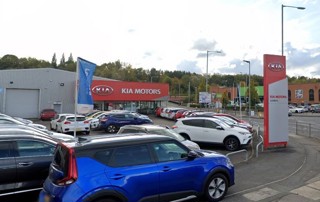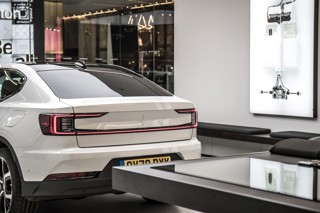Lookers has recommenced shares trading on the London Stock Exchange following publication of interim financial results which revealed a £50 million loss in a COVID-impacted H1, 2020.
The AM100’s second placed car retail group suffered a 40% decline in revenues, to £1.56bn, and a 355.1% decline on pre-tax profits, to record a £50m loss, during the six month period to June 30.
The performance came in a period which saw it battle to restructure its operations amid an internal fraud and Financial Conduct Authority (FCA) investigations and included stalled talks over a potential merger with Pendragon.
Last year saw Lookers commence a planned restructuring which included 12 site closures before the end of 2020 – following the closure of 15 locations in 2019 – and the implementation of over 1,500 redundancies as the delayed publication of its results triggered an end to Stock Market Trading.
Today’s (January 29) interim results said that the business would see the full benefit of the changes in 2021, however, adding that an outperformance of the market in H2 2020 had brought a year-on-year improvement that would serve to offset its H1 losses.
Financial analyst Numis estimated a Lookers shares price target of 55p – upon a re-start of trading today – in light of today’s announcement, a level “significantly ahead of where the shares last traded”. Upon publication of this article, prices had recovered from 22p to 40.7p
 Lookers chief executive, Mark Raban, said: “2020 was a challenging year for Lookers, managing the impact of the COVID-19 pandemic and a number of legacy issues facing the Group, which required significant action to restructure and improve the business for the long term.
Lookers chief executive, Mark Raban, said: “2020 was a challenging year for Lookers, managing the impact of the COVID-19 pandemic and a number of legacy issues facing the Group, which required significant action to restructure and improve the business for the long term.
“Despite a resilient sales performance, the benefit of Government support and prompt action taken to manage costs, in the first half we incurred a significant loss in a very difficult period for the car retail industry.
“Although various restrictions continued into the second half of the year, trading improved significantly, benefiting from the material cost saving measures implemented earlier in the year and enhancements we have made to our retail offer, including the capability to carry out contactless vehicle sales.”
In today’s interim results, Lookers said that it had succeeded in significantly reducing net debt to approximately £45m at the end of December 2020 (2019: £59.5m).
This reflected the net proceeds of £17.4m from the disposal of a number of properties during 2020, strong working capital and cost control and the benefit of deferred VAT and delayed PAYE/National Insurance payments agreed under Government schemes.
The group benefited from £29.7m in payments from Government's Coronavirus Job Retention Scheme (CJRS) and £3.5m of rates reductions in the reported period.
Away from car retail, it said that the disposal of agricultural equipment retailer Platts Harris in November 2020 was expected to realise further proceeds of £1.6m.
Last year brought about a “board refresh” at Lookers, which saw the introduction of Robin Churchouse and Anna Bielby to the board as Chair of the Audit Committee and Interim Chief Financial Officer, respectively.
Today, the group also announced the promotion of Duncan McPhee to the board as chief operating officer.
McPhee joined Lookers from Arnold Clark in 2008 and had progressed from a position as general manager to franchise director.
Lookers’ search for a successor to chairman Phil White is ongoing.
Looking ahead to the remainder of 2021, an outlook statement published in today’s report said that the impact of COVID-19 lockdown would be partly mitigated by the continued progress of ‘Click and Drive’ and the continued operation of the group’s aftersales division.
Raban said: “I would like to thank all my colleagues for their continued dedication in these difficult circumstances and also our OEM brand partners for their ongoing support.
“Going into 2021 there remains a high level of uncertainty in the wider environment, but we are confident that the Group is now much better positioned for the longer term and can capitalise on the various opportunities ahead, not least in electrification and digital developments.”



















Login to comment
Comments
No comments have been made yet.